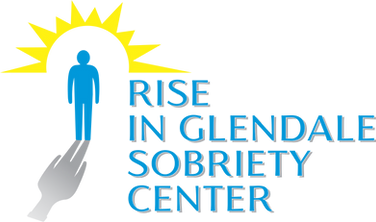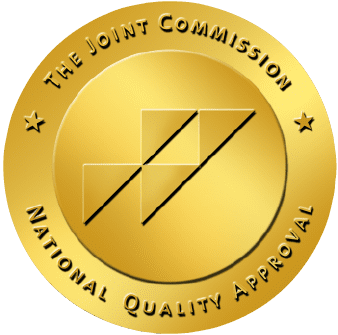
At Rise in Glendale Sobriety Center, we understand the importance of providing resources for those seeking education and support on substance abuse. That’s why we have created a publicly-available Resource Center that offers information on substance use disorders, behavioral therapies, treatment plans, and various types of psychoactive substances. Our Resource Center is open to everyone, regardless of whether they become a patient at our treatment center.
As part of our outreach to help educate individuals and families about substance abuse, we at Rise in Glendale Sobriety Center has put together a detailed list of the types of prescription dugs and street drugs, allowing people to better understand how these types of psychoactive substances can lead to addiction. To view a facts sheets on a particular type of drug, please click on its name to open the PDF sheet.

At Rise in Glendale Sobriety Center, we understand that individuals seeking treatment for substance use disorders, behavioral addictions, and dependencies on psychoactive substances such as alcohol, prescription drugs, and street drugs may have questions and concerns. We believe that educating our customers about medical detoxification, treatment plans, and aftercare can help them feel more confident in their journey of recovery. To provide clarity, our addiction specialists have compiled answers to some of the most frequently asked questions by consumers related to our substance abuse treatment center.
Addiction to substances is a significant problem that impacts numerous individuals. It's essential to comprehend that addiction is a disease, it’s a chronic brain disorder, not a consequence of poor decision-making or a lack of willpower. Substance use disorder is a prevalent illness that can impact individuals from all walks of life, regardless of their socioeconomic status, gender, age, or ethnicity. The use of alcohol or drugs can be influenced by various factors, including one's environment, psychological traits, and stress levels. It's crucial to recognize that seeking assistance is a sign of courage, and recovery is achievable.
According to the American Society of Addiction Medicine, addiction is a lifelong condition that involves compulsive sensation seeking and self-medication of a substance despite negative consequences. Seeking professional help and support is crucial to overcoming addiction.
Currently, Rise in Glendale Sobriety Center provides residential, inpatient substance abuse treatment plans for adults, men and women aged 18 and older.
At Rise Glendale Sobriety Center, our standard inpatient substance abuse treatment plan is a 30-day program. This standard program that is an excellent option for anyone suffering from substance use disorders, behavioral addictions, and dependency on psychoactive substances like alcohol, prescription drugs, or street drugs.
This program allows the patient to reside in our private, luxury residential treatment center with a team of addiction specialists that build a sustainable foundation for recovery with medical detox as the first step. Once toxins and withdrawal symptoms have been cleared safely through detox, the patients clinical addiction team will work through the underlying causes of their substance abuse addiction with counseling, behavioral therapies and if needed supervised medication to help individuals break the cycle of compulsive abuse while in treatment.
The Affordable Care Act made addiction and mental health treatment an essential benefit in many insurance plans. Your health insurance plan may cover all or part of your inpatient substance abuse treatment for substance use disorders, behavioral addictions, and dependency on psychoactive substances like alcohol, prescription drugs, and street drugs as a result. Please call our admissions department at 1-818-818-7509 so they can, free of charge instantly check your insurance coverage for your eligible addiction treatment benefits. To speed up the insurance verification process, please click here to fill out Insurance Verification Form so one of our admissions coordinators can schedule a follow up call with you.
Yes, in most cases. Diverse types of medications can be beneficial at various stages of the treatment process to help patients stop abusing drugs, stay in treatment, and prevent relapse.
Stage 1: Treating withdrawal symptoms. When patients first stop using the substance they have been addicted to, they can experience symptoms that can include physical and emotional discomfort, such as restlessness, sleeplessness, depression, and anxiety. However, certain medications can help alleviate these symptoms, making it easier for patients to stop using the substance.
Stage 2: Staying on course with treatment. Some treatment medications and mobile applications can help the brain adapt to the absence of a substance. These treatments work gradually to prevent substance cravings and have a calming effect on the body's systems. By reducing cravings, patients can focus on counseling and other psychotherapies related to their substance abuse treatment.
Stage 3: Preventing trigger for relapse. The science behind substance abuse triggers and relapse tells us that stress cues, such as people, places, things, and moods, as well as contact with substances, are the most common triggers for relapse. To help patients stay in recovery, behavioral therapies are used to interfere with these triggers.
Rise in Glendale Sobriety Center has a partnership with WellPharmaRx Pharmacy as their preferred provider of behavioral health medications. To learn more about WellPharmaRx Pharmacy, please click on the next question link below.
Yes. WellPharmaRx Pharmacy is a women-owned, behavioral health care and clinical pharmacy that has become one of California's top community and Behavioral Health Care Pharmacy that partners with healthcare facilities including behavioral health clinics, recovery addiction centers, assisted living communities, and many more.
As a Behavioral Health Care Pharmacy, our clinical pharmacy team has partnered closely with specialized care teams like Rise in Glendale Sobriety Center to handle and delivery of specialty medications to their patients including: 1) High Cost including self-administered injectables, professionally administered injectables/ infusions, and oral medications, 2) High Complexity Medications that are included in a specialty therapeutic drug class strategy and 3) High Touch Medications that require temperature control or other special handling requirements (i.e., refrigerated or frozen shipping, used to treat complex conditions.
Our top-notch clinical pharmacy care team understands the daily medication challenges and chronic conditions that the Rise in Glendale Sobriety Center specialized care team experience, including the obstacles that prevent patients from staying on their treatment program. Because of that, we work closely with the centers care team from medication management to creating tailored delivery schedules that help improve patient outcomes.
At Rise in Glendale Sobriety Center, behavioral therapies are a crucial component that have been proven to be very effective in engaging patients as they progress through their supervised, residential treatment plan for substance abuse addiction.
These behavioral therapy approaches provide incentives for patients to remain abstinent, modify their attitudes and behaviors related to substance abuse, and increase their life skills to handle stressful circumstances and environmental cues that may trigger intense cravings for substance use. Behavioral therapies can also improve the effectiveness of supervised medications and help individuals break the cycle of compulsive abuse while staying in treatment for longer periods of time.
It can be very challenging and stressful to learn that someone you love may have a severe problem with substance abuse disorders, behavioral addictions, and dependency on psychoactive substances like alcohol, prescription drugs, and street. What can I do? Speak up sooner rather than later: The earlier your loved one with addiction receives treatment, the better. At Rise in Glendale Sobriety Center, we are open 24/7 and here to help you and your loved one overcome addiction. Take the first step in helping them by calling us at 1-818-818-7509.
Our admissions coordinators can help guide you every step of the way. You’re not alone in the process. We handle everything from insurance verification to admissions to getting your loved one settled into our licenses facility with starting treatment as fast as possible.
With treatment, there are challenges of recovering from substance use disorders and behavioral addictions, as well as the importance of supportive friends, family members, and healthcare providers in effective treatment. While managing addiction, living a happy, healthy life free from addiction is possible with medical detox, treatment, and behavioral therapies at Rise in Glendale Sobriety Center.
Individuals can face serious consequences, health issues, and even death if their addiction goes untreated. It can damage personal relationships, cause financial difficulties, and lead to legal problems. Additionally, untreated addiction can harm family members, and the effects can last for generations.
Substance abuse addiction can cause major disruptions in a person's life, affecting their family, physical health, mental well-being, relationships, and career. It's essential to recognize the harmful consequences and acknowledge the detrimental effects of addiction and seek help to overcome its negative and lifelong effects.
The harms of substance addiction can affect one's overall quality of life. They include:
The good news is that addiction is a treatable disorder. With the help of evidence-based treatment methods, individuals can overcome substance use and regain control of their lives. Contact Rise Sobriety Center today at 1-818-818-7509 and discover how you or your loved ones overcome substance addiction and return to living in a productive functioning environment within their family, workplace, and society.
An effective substance abuse treatment should encompass 3-phases into the substance abuse treatment process. At Rise in Glendale Sobriety Center, we use a 3-phase process to help patients overcome substance abuse addiction.
They are:
Phase 1: Medical Detoxification
We provide an inpatient, detoxification process through a medically supervised environment that encompasses three essential intervention components aimed at managing acute intoxication and withdrawal while clearing of toxins from the body of the patient who is highly dependent on substances of abuse.
Phase 2: Treatment Program
After detox, our medical addiction team will create an individualized substance abuse treatment plan to address addiction disorders, dependency and triggers that cause relapses. Because addiction can affect so many aspects of a person's life, our counselors and therapists address the needs of the whole person.
Phase 3: Aftercare Plan
Those who complete an inpatient medical detox and substance abuse treatment program together, will have a greater success of staying sober without relapses. After comprehensive treatment, we ensure that each patient departs with an aftercare support plan as they transition back home, giving them the best opportunity to live happy, healthy lives free from addiction.
Substance abuse treatment rehabilitation is a term used to describe the processes of medical or psychotherapeutic treatment for individuals who are dependent on psychoactive substances such as alcohol, prescription drugs, and street drugs.
The treatment process can help individuals confront substance dependence and cease substance abuse to avoid the negative consequences that can arise from extreme abuse and addiction to such substances. These consequences can include psychological, legal, financial, social, and physical effects. The goal of this treatment is to help individuals overcome their addiction and regain control of their lives.
At Rise in Glendale Sobriety Center, we understand that the cost to treat substance use addiction can be a major concern. That's why we accept most major health insurance plans to help cover the cost of a 30-day, medical detox, and inpatient substance abuse treatment plan.
The cost of enrolling into an inpatient substance abuse treatment program varies depending on the patient’s level of treatment, insurance coverage, and other unique factors. The good news is that the Affordable Care Act has made addiction treatment an essential benefit, which means that your insurance may cover all or part of your treatment. However, the extent to which your insurance will cover treatment depends upon a variety of factors, including your policy’s particular behavioral health benefits, your substance abuse treatment provider, your particular needs, and more.
To learn more about payment options, see our question entitled below: What are my payment options for treatment if I don’t have insurance, or my insurance does provide coverage for treatment?
Great to hear that you are interested in our substance addiction treatment services at Rise in Glendale Sobriety Center. We understand that each patient's needs are unique, and we tailor each patient's treatment plans accordingly. Your individualized, 30-day inpatient substance abuse treatment plan will determine the exact costs.
The cost of addiction treatment should not be a barrier to receiving the care you need. At our accredited substance abuse treatment center, we believe that everyone deserves access to quality treatment regardless of their financial situation. We offer various payment options and financial assistance programs to help make treatment affordable for all which include:
We understand that seeking help for substance use addiction can be overwhelming. That's why our admission coordinators are here to guide you through the admissions process. To get the best results from your call, we have outlined the necessary information you will need to provide to our admissions coordinator when talking to them.
Yes. The confidentiality of information shared between individuals and our admissions coordinators is protected by HIPAA, or the Health Insurance Portability and Accountability Act of 1996, which is a federal law that safeguards sensitive patient health information from being shared or disclosed without a patient's consent or knowledge. You can learn more about the HIPAA act at https://www.cdc.gov/phlp/php/resources/health-insurance-portability-and-accountability-act-of-1996-hipaa.html
The stages of substance use may lead to addiction, with young people often moving more quickly through these stages than adults.
The stages include:
Stage 1: Experimental use, which is typically done for recreational purposes and may involve defying authority figures;
Stage 2: Regular use, which involves increased tolerance and ability to handle the substance, as well as changes in behavior and relationships;
Stage 3: Problem or risky use, which may involve a loss of motivation, secretive behavior, and legal problems; and
Stage 4: Addiction, which is characterized by an inability to face daily life without substance use, denial of the problem, worsening physical condition, loss of control over use, and potential suicidal thoughts. Addiction may also lead to financial and legal problems, as well as broken ties with family members or friends.
There are a variety of confidential, free, and no obligation ways to get in contact with Rise in Glendale Sobriety Center to learn more about residential, inpatient substance abuse treatment.


3449 Stancrest Drive,
Glendale, CA 91208
License Number: 191304AP
Effective Date: 2/1/2024
Expiration Date: 1/31/2025
RISE in Glendale Sobriety Center
3449 Stancrest Drive,
Glendale, CA 91208
General Email:
info@risesobrietycenter.com
General Info & Admissions:
(747) 255-7083
For any general inquiries, please fill in the following contact form:
© 2025 Rise in Glendale Sobriety Center, Inc. All Rights Reserved.